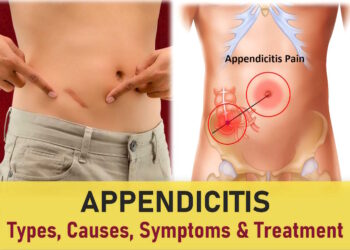Understanding and managing your digestive health is crucial for overall well-being. While diarrhea and constipation are common on their own, alternating between these conditions can be puzzling and uncomfortable. At times, you may experience constipation following a bout of diarrhea, a condition that can stem from various underlying factors. In this article, we’ll review causes, treatment options, and effective home remedies to address constipation after diarrhea.
Understanding Bowel Movements
Bowel habits vary significantly from person to person. While some individuals have multiple bowel movements daily, others may only go a few times a week. The key to healthy bowel habits is ensuring that stools are soft, well-formed, and passed without discomfort.
Occasional episodes of diarrhea or hard stools are normal. However, it’s uncommon to experience frequent transitions between the two. Constipation following diarrhea often signals an underlying issue that needs attention.
What This Article Covers
In this comprehensive guide, we will explore:
- The possible causes of constipation after diarrhea
- Effective treatments and home remedies
- When to seek medical advice for persistent or severe symptoms
Causes of Constipation After Diarrhea
Let’s look at some common causes of this condition and how they affect the body:
Stomach Flu
Stomach flu, or viral gastroenteritis, is a temporary infection of the gastrointestinal (GI) tract caused by a virus. It inflames the stomach and intestinal lining, leading to diarrhea due to water malabsorption. This infection also pushes out waste matter, resulting in frequent bowel movements.
However, the inflammation can weaken intestinal muscles, making it harder for them to push waste through. As a result, you may experience constipation after the diarrhea subsides. This alternation between diarrhea and constipation may last until the inflammation heals entirely, which typically takes a few days to weeks.
Pregnancy
Constipation and diarrhea are common during pregnancy due to several factors:
- Dietary changes: Consuming new foods or altering eating habits can upset the stomach.
- Food sensitivities: Pregnancy may trigger sensitivities or allergies to certain foods, leading to digestive distress.
- Prenatal vitamins: These supplements can influence bowel habits, causing either diarrhea or constipation.
- Hormonal fluctuations: Pregnancy hormones can slow down GI tract movements.
Inflammatory Bowel Disease (IBD)
Inflammatory bowel diseases, such as Crohn’s disease and ulcerative colitis, can cause alternating bouts of diarrhea and constipation. These conditions result in GI inflammation and impaired water and sodium absorption.
Additionally, IBD can involve autoimmune responses where the body attacks intestinal tissue, disrupting muscle function and stool movement. This leads to periods of diarrhea due to unabsorbed fluids and constipation due to slowed intestinal transit.
Irritable Bowel Syndrome (IBS)
Unlike IBD, irritable bowel syndrome (IBS) is triggered by factors such as diet, stress, or changes in gut bacteria. Common symptoms include pain, cramping, fatigue, diarrhea, and constipation.
IBS is classified into three types:
- IBS-C: Primarily constipation (hard, lumpy stools in over 25% of bowel movements)
- IBS-D: Primarily diarrhea (watery stools in over 25% of bowel movements)
- IBS-M: A mix of constipation and diarrhea, with each accounting for at least 25% of bowel movements
In IBS-M, you may experience alternating episodes of diarrhea and constipation, commonly referred to as the constipation/diarrhea cycle.
Diet
A person’s diet significantly influences bowel habits. Certain foods can irritate the intestines, while others may trigger allergies or sensitivities, resulting in digestive issues. Common dietary culprits include:
- Cow’s milk
- Cereal grains (e.g., wheat)
- Soy
- Eggs
- Seafood
- Fructose and sugar alcohols
Keeping a food journal can help identify trigger foods and manage symptoms.
Reaction to Medications
Certain medications, including NSAIDs, antipsychotics, antidepressants, and metformin, may cause gastrointestinal side effects similar to IBS or IBD. These effects can range from diarrhea to constipation, depending on how the body reacts to the medication.
If you experience significant changes in bowel movements after starting a new medication, consult your doctor. In some cases, these symptoms may subside as your body adjusts to the treatment.
Treatments for Constipation After Diarrhea
Managing constipation after diarrhea requires a combination of clinical treatments and lifestyle adjustments. The right approach depends on the underlying cause, as discussed in the previous section. Below are some effective treatments and home remedies, as well as guidance on when to seek medical advice.
Clinical Treatments
Here are common medical interventions for addressing conditions that may cause constipation after diarrhea:
Stomach Flu
- Oral Rehydration Solutions (ORS): Products like Pedialyte help restore fluid and electrolyte balance lost during diarrhea.
- Probiotics: Replenish healthy gut bacteria to aid recovery.
Inflammatory Bowel Disease (IBD)
- Regular Monitoring: Colonoscopies to assess bowel health.
- Anti-inflammatory Medications: Drugs like mesalamine, sulfasalazine, and corticosteroids to reduce inflammation.
- Immune Suppressants: Medications like tofacitinib (Xeljanz) to prevent immune attacks on gut tissue.
- Symptom Relief: Antidiarrheal drugs and laxatives to manage bowel movement irregularities.
- Supplementation: Iron and other nutrients to address deficiencies caused by poor absorption.
- Surgical Interventions: Procedures to remove damaged bowel sections or widen narrow areas of the intestine.
Irritable Bowel Syndrome (IBS)
- Antidepressants: Medications like fluoxetine (Prozac) or citalopram (Celexa) to reduce stress and anxiety.
- Antidiarrheal Medications: Drugs like loperamide to slow GI muscle contractions.
- Antispasmodics: Peppermint oil or belladonna alkaloids to alleviate cramping.
- Bile Acid Sequestrants: Medications like cholestyramine for cases where standard antidiarrheal treatments are ineffective.
- Fiber Supplements: Help bulk up stools for easier passage.
- Laxatives: Products like polyethylene glycol 3350 (MiraLAX) for stool softening and relieving constipation.
Home Remedies
In addition to medical treatments, these home remedies can help ease symptoms and promote regular bowel movements:
- Heat Therapy: Apply a heating pad to the abdomen for 15 minutes to relieve cramps.
- Hydration: Drink plenty of water daily to maintain proper fluid levels.
- Exercise: Light to moderate physical activity can encourage bowel movements.
- Brown Rice Water: Boil brown rice and consume the water to replenish lost electrolytes.
- Ginger: Consume fresh ginger or drink ginger tea to soothe the stomach.
- Mint: Mint tea or fresh mint can help alleviate nausea and stomach discomfort.
- Probiotic Foods: Incorporate unflavored kefir or yogurt to restore gut bacteria.
- Fiber-Rich Foods: Include foods like whole grains, fruits, and vegetables to ease stool passage.
- Avoid Gluten: If gluten triggers irregular bowel movements, consider gluten-free alternatives.
- Low-FODMAP Diet: Reduce consumption of foods like dairy, legumes, and certain fruits and vegetables high in fructose.
- Probiotics: Take supplements to promote a healthy gut microbiome.
- Stress Management: Practice relaxation techniques to minimize stress-induced digestive issues.
- Avoid Smoking and Alcohol: Limit both to reduce their impact on bowel habits.
When to Seek Medical Help
While constipation after diarrhea often resolves on its own, consult a healthcare provider if symptoms persist for several days or worsen. The following symptoms require prompt medical attention:
Signs of Dehydration
- Dark yellow urine or reduced urine output
- Dry, sticky mouth
- Increased thirst
- Headache, dizziness, or lightheadedness
Signs of Severe Constipation
- Hemorrhoids from excessive straining
- Anal fissures caused by passing hard stools
- Persistent feeling of incomplete evacuation
- Inability to pass stool
- Rectal prolapse due to excessive straining
Long-Term Management
Managing alternating constipation and diarrhea requires a proactive approach that includes lifestyle adjustments, dietary modifications, and, in some cases, medical intervention. Here are some strategies for long-term management:
Maintain a Balanced Diet
- Fiber Intake: Include soluble and insoluble fiber from sources like fruits, vegetables, whole grains, and legumes to support regular bowel movements.
- Hydration: Drink plenty of water to keep stools soft and avoid dehydration.
- Avoid Triggers: Identify and eliminate foods that cause irregular bowel movements, such as spicy foods, artificial sweeteners, or allergens.
Monitor and Manage Stress
- Practice relaxation techniques such as yoga, meditation, or deep breathing exercises to reduce gut-related stress responses.
- Consider counseling or therapy if stress significantly impacts your digestive health.
Exercise Regularly
- Engage in moderate physical activity like walking, swimming, or yoga to promote gut motility and overall health.
Follow Medical Advice
- Work with your healthcare provider to manage underlying conditions like IBS or IBD effectively.
- Use prescribed medications as directed to regulate bowel movements and reduce inflammation.
Track Symptoms
- Keep a symptom journal to note patterns in bowel habits, dietary triggers, and other contributing factors.
- Share this information with your doctor to refine your treatment plan.
Explore Probiotics
- Consider taking probiotics to maintain a healthy gut microbiome and support digestion.
Seek Medical Support When Needed
- If symptoms persist or worsen, consult your healthcare provider promptly.
- Schedule regular check-ups if you have a chronic condition like IBD or IBS to monitor your health.
Frequently Asked Questions (FAQs)
Here are answers to common questions about constipation after diarrhea:
Can constipation and diarrhea occur at the same time?
Yes, it is possible to experience alternating constipation and diarrhea. This can occur due to conditions like irritable bowel syndrome (IBS), inflammatory bowel disease (IBD), or certain medications that affect bowel movements.
Is diarrhea a form of constipation?
No, diarrhea and constipation are different conditions. Diarrhea refers to loose, watery stools, while constipation involves difficulty in passing hard, dry stools. However, they can occur alternately due to underlying issues.
Why do I feel constipated after having diarrhea?
This can happen when your gastrointestinal tract reacts to inflammation, dehydration, or changes in muscle function. The stool may become impacted due to slowed gut motility after diarrhea.
Can constipation cause diarrhea?
In some cases, severe constipation can lead to “overflow diarrhea,” where liquid stool leaks around impacted stool in the intestine. This requires medical evaluation and treatment.
What foods should I avoid to prevent alternating diarrhea and constipation?
Common triggers include high-fat, spicy, or processed foods, as well as food allergens like gluten, dairy, and certain artificial sweeteners. Keeping a food diary can help identify specific triggers.
When should I see a doctor about constipation or diarrhea?
If you experience symptoms like severe pain, bloody stools, dehydration, or symptoms persisting for more than a few days, consult your healthcare provider. Chronic issues may indicate an underlying condition that needs medical attention.
Can stress cause alternating diarrhea and constipation?
Yes, stress can significantly affect gut health. It may lead to irregular bowel movements, including episodes of diarrhea and constipation. Stress management techniques, like meditation or therapy, can help.
Are there long-term complications of untreated constipation or diarrhea?
Yes, chronic constipation can lead to complications like hemorrhoids, anal fissures, and fecal impaction. Persistent diarrhea can result in dehydration and nutrient deficiencies. Both require proper treatment to avoid long-term health problems.
Final Note
Understanding the relationship between constipation and diarrhea is essential for effective management. While these conditions are not typically serious when they occur occasionally, persistent symptoms require attention to avoid complications. With the right combination of lifestyle adjustments, medical treatments, and self-awareness, you can maintain a healthier digestive system and improve your overall quality of life.

































